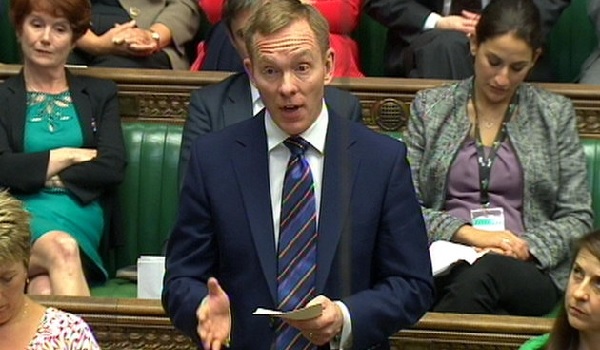MPs line up to support the Protect the Protectors Bill
The Assaults against Emergency Workers (Offences) Bill has unanimously passed its second reading and will now go to the committee stage.
The Assaults against Emergency Workers (Offences) Bill has unanimously passed its second reading and will now go to the committee stage. The Bill would double the maximum sentence for common assault against an emergency service worker from six months to a year. It follows a campaign by the Police Federation of England and Wales (PFEW) calling on the Government to Protect the Protectors. MP Chris Bryant, who took over the Private Members Bill after MP Holly Lynch raised it, said an assault on an emergency service worker is an attack on us all. MPs supported the Bill on the condition that amendments are made at the committee stage to ensure the definition of emergency worker covers all NHS employees. Under the Bill, an assault on an emergency service worker will become an either way offence triable in the Magistrates or Crown Court with a maximum sentence of 12 months, a fine or both. In 2011/12 there were 59,794 attacks on NHS staff, rising to 70,555 in 2015/16, while the number of criminal sanctions for those assaults fell from 1,380 to 1,250. And figures from the Home Office suggest there were 24,000 assaults on police officers in England and Wales in 2016/17. The PFEW estimates an assault on an officer occurs every four minutes, not including Police Community Support Officers. Mr Bryant said: It is incomprehensible how when somebody comes to save your life, they could be physically attacked for doing so. Theres a cry of outrage at the heart of this Bill. If the victims do not feel that there has been justice, then it feels to the whole of society as if people get away with it. It is as if theres a law of lawlessness when it comes to attacking the police. At the well-attended debate, lasting several hours, the Bill received unanimous support from both sides of the House of Commons as MPs lined up to share their disgust at the low sentences handed out. Mr Bryant told Parliament of an officer who suffered a broken nose as a result of a member of the public punching him in the face. His assailant was given a curfew and ordered to pay a mere £85 in court costs. MP Fiona Bruce said one force told her 90 per cent of its officers expect to be assaulted on a Friday or Saturday night when policing the night time economy. And 86 per cent of officers surveyed in North-East England said they had been assaulted by people under the influence of alcohol, 21 per cent of whom had been assaulted six or more times. She also highlighted the prevalence of sexual assault against female officers. One officer told Ms Bruce that if a female officer was to walk through a licensed premise, she will have been felt up on several occasions by the time she reached the other end. During the debate, several MPs told Parliament of harrowing stories that police officers across the UK have shared with them. Ms Lynch spoke of an officer who had blood spat at him, and had to wait for six months to find out if he had contracted a disease. As a result, professionals deemed it was too dangerous for him to visit his brother, who was undergoing treatment for cancer. Under the new legislation, officers will be able to take blood samples with consent from those who have spat at or bitten emergency workers and exposed them to the risk of infection. Failure to give a blood sample without good reason would also become an offence. Clause two of the Bill will introduce a new aggravating factor which indicates if a more than usual serious degree of harm has been committed. MP Kelly Tolhurst said this was essential because not only is the aggressor hurting an emergency worker, they are also damaging the entire sector. When an officer is forced to take leave following a violent incident, that force is left short-staffed, and that can have a direct impact on that area, she added. We cannot allow our public services to be weakened by the callous actions of individuals who are indifferent to how their behaviour negatively affects the community. By ensu


